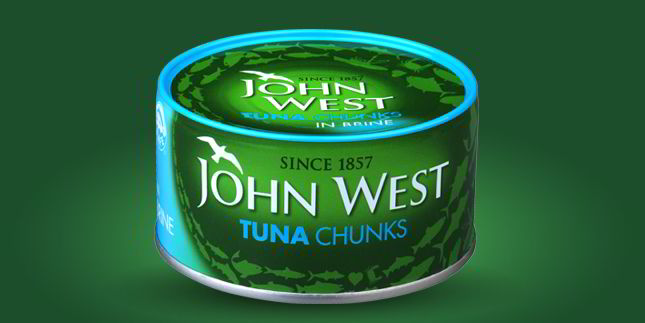In December last year, Thai Union Group announced an ambitious strategy to ensure 100 percent of its branded tuna is sustainably sourced with a commitment of achieving a minimum of 75 percent by the end of 2020.
And to help achieve this, it is investing a significant $90 million (€83.3 million) into this drive.
However, while those commitments are for the whole group, the company is particularly accelerating its sustainability plans for its UK division John West, which recently came under fire from Tesco and saw some of its products delisted from the retail giant as a result.
For John West, the company plans to have its entire tuna range all Marine Stewardship Council (MSC) or fisheries improvement project (FIP) engaged by the end of 2017, Elisabeth Fleuriot, CEO of Thai Union Europe, told IntraFish.
“This is a big commitment, a big change,” Fleuriot said of the project.
“For the UK, because we know the consumer is more advanced, and the retailers are more sensitive to it, we want to do it before -- so before the end of 2017 -- we plan to have our tuna range all MSC or FIP engaged.”
The overall project will be implemented phase by phase starting with the UK, because the issue of sustainability is “most important in the UK environment.
“In doing that we hope to give a clear signal to consumers and retailers -- this category is doing what is right for the environment and for the ocean,” said Fleuriot.
“It is something we take very seriously.”
Just last week, Thai Union signed a partnership agreement for large FIP large involving all fleets operating in Indian Ocean.
As part of this, “everyone is around the table,” said Fleuriot, not just Thai Union, but its competition as well, also various local governments, and NGO’s such as Greenpeace are looking carefully at it.
“We are in constant discussions -- this is the first job and it is a big start,” said Fleuriot.
The company is also starting a FIP in the Atlantic Ocean focusing predominantly on Ghana, which the company hopes to be up and running by the end of the year.
“We’ve already got the agreement of the vast majority of the fleet and key players in Ghana to be up and running by the end of this year.”
Not only is sustainability important for the environment, but Fleuriot also believes it is Thai Union’s role as leader in the seafood industry so it is making changes not only in Europe but also worldwide.
“We are also planning a big FIP in the Pacific Ocean and elsewhere and we’ll probably have around 11 FIPs by 2020,” she said.
“This is serious, we have put $90 million [€83.3 million] on the table.” But it is also important to know Thai Union is not starting from zero.
“At the end of December 2016, in Europe, we already had 15 percent of our business MSC-certified, which is already a significant part,” said Fleuriot.
This MSC product will be accelerated in a lot of markets, in Germany for example, where the company’s branded tuna will be 100 percent MSC because it is a country where nothing else will suffice.
In France, meanwhile, Thai Union will introduce more than 30 SKUs that are MSC-certified in 2017 in ambient and in chilled and on tuna, mackerel and pollock.
In the UK, 25 percent of John West branded SKUs will be MSC-certified by end of 2017 and, for tuna, the rest will be in a FIP, said Fleuriot.
“We are doing that in a lot of countries -- I think this is really a big, big change," she told IntraFish.
As for whether John West is to see its products relisted in Tesco any time soon, Fleuriot said the two companies were “in constant discussions” as Thai Union Europe is with all its customers.
“We still have a big part of our range -- particularly VAP -- in Tesco and we will continue discussions, we never stop discussion with any customer.”
